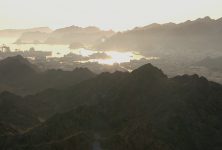The Historical Crossroad of Empires is Europe’s Exciting Business Destination
Serving his second mandate as President of the Republic of Macedonia, H.E Dr. Gjorge Ivanov, the renowned political scientist and leading expert in the field of civil society, turned President in 2009, is guided by the principles of nurturing the existing and creating new partnerships for the country in Europe and the world. Emphasising his efforts towards strengthening the national unity and opening new horizons for the Republic of Macedonia on international level, he reflects on the country’s past, present and future development plans.
What were your goals at the beginning of your mandate, and how have they developed throughout time? What were the biggest accomplishments and challenges that the country has faced during your tenure?
Gjorge Ivanov: As a country, since our independence, we have set two main strategic goals: becoming a member state of NATO and the EU. Ever since then, the blockades on our path have prolonged the realisation of these goals, so we had to adapt to the newly-created ambient. Since day-one of my mandate, I have promoted the politics of openness to all. In addition to the strategic goals of becoming NATO and EU member country, our openness to neighbours, the surrounding region, Middle Eastern and North African countries, has created opportunities to acquire new friendships, generating improved conditions for our businesses. Overall, the politics of openness and good inter-state relations, while focusing on our resources and disposable capacities, in the background of the developments within the EU and NATO which are prone to changes, have dominated my term in office.
How has Macedonia dealt with the global economic crisis?
Gjorge Ivanov: In the peak of the financial crises which have started in 2008 and pulled down many national economies, Macedonia had shown growth and development mainly as the result of foreign direct investments. As the budget began to grow, the country gained strength to invest in projects which have been neglected in the past. We have computerised education; hospitals became better equipped, and infrastructure has been developed. We are currently building three major highways, two of which are part of important Trans-European corridors.
As one of the fastest growing economies, Macedonia is promoted as an excellent investment destination. How would you describe Macedonia’s economic growth? To what extent have foreign direct investments influenced Macedonia’s economy?
Gjorge Ivanov: Macedonia ranks high on the lists of all international agencies that monitor the openness of economies and access to foreign direct investments. These rankings have proved the effects of suitable internal economic policies of the country, which inevitably attracted the attention of foreign investors.
These foreign direct investments have also shown the need for adjustments in our educational system so that it can provide qualified professionals for the 21st century. The third millennium has no need for general profiles of workers, but workers with interdisciplinary competencies. Therefore, the Macedonian educational system is being reformed to provide qualifications which are deficient in the international labour market.
The Government is supporting a variety of innovative and creative ideas such as start-up incubators and accelerators, which strive to impose innovation in corporate operations. By using the advantages of the advanced smart technologies, Macedonia aims to prepare its citizens for the era when people will work remotely. We are proud that our students have been awarded by Microsoft for their part in the creation of the new Windows operating system, and a Macedonian company was participating in the making of the digital animation in several motion pictures winning the Oscar’s.
What has been done and what are your recommendations for enhancing regional cooperation?
Gjorge Ivanov: There are many regional projects in the areas of ecology and environmental impact, conservation of natural resources and enhancing collaboration on the municipal level, which are supported by our country in cooperation with the European Union. Many regional projects and cooperation initiatives have been launched to heal the wounds created by the break-up of the Yugoslav Federation, and so far, they have succeeded to recover the process of dialogue, cooperation and trust among the post-Yugoslav republics. Balkan countries became aware that they can improve their infrastructure only through regional cooperation and that bridging territorial and cultural barriers will open them to new opportunities and growth prospects.
In that direction, as President, since day-one of my mandate, I have supported the Adriatic-Ionian highway, as well as linkages of all kinds between Balkan countries and beyond. By opening the region, the mindset of the people opens up as well, and the borderless ambience creates positive competition among nations, leading to new ideas, products and services.
Since gasification remains one of the greatest regional projects of our time, I believe that the benefits of a cleaner living environment and more affordable energy will soon be enjoyed by every country involved in these projects.
At the level of Presidents from the region, we cooperate not only on formal state matters but also on more informal projects aimed at supporting the youth, such as my School for Young Leaders. While we have attained good relations with four out of the five neighbouring presidents, unfortunately, after many tries and official invitations, for 25 years we could not attain a single meeting with a Greek President. From the other side of the coin, we are having intense collaboration with the Prime Minister of Greece, with the Mayor of the City of Thessaloniki, as well as with the Greek businessmen, which are also supporters of the School for Young Leaders.
As a university professor, you have always promoted the value and the importance of youth. You have mentioned the School of Young Leaders, could you please describe the impact it has on young Macedonians?
Gjorge Ivanov: Since day one of my Presidency, I have asked myself what would a professor do in politics, if not establish his school? Therefore, the School for Young Leaders, from an idea has turned into reality successfully running for seven years in a row. By now, the school has trained over 280 outstanding young individuals, from Macedonia, as well as international participants, which have been educated by over 150 leaders from the global political, business, scientific, cultural and other areas of expertise.
By knowing that the youth of today are the leaders of the present and the future, our investment in the young people of Macedonia is our investment in the future of the country.
You say that Macedonia is a country with “a lot of history and less geography.” How has history and the kaleidoscope of ethnicities living on its territory shaped the country’s past, present and how will it shape its future? What are Macedonia’s advantages as a multiethnic society?
Gjorge Ivanov: Macedonia has a rich heritage from the past, which makes its multi-ethnic legacy a project to be preserved in the future. Spread on a piece of land where many empires have left their mark, Macedonia has attained harmony for all ethnic communities that are living on its soil through mutual respect and integration without assimilation. Although the democratic principle of including everybody and excluding no one might be the most complex one for good governance of the country, at the same time, it is something we are very proud of as Macedonians.
You are known as a president who has visited every square meter of his country. How would you describe Macedonia to our readers, especially those interested in Macedonia as a tourist destination?
Gjorge Ivanov: While some people may have heard about Macedonia from the Holy Bible, others may have heard from the name dispute with Greece, or even from the NASA’s consideration of our observatory Kokino as the World’s fourth oldest observatory, from the Neolith times. Macedonia is known as a land of natural beauties, high peaks, deep-blue lakes, endemic species, beautiful villages, churches, monasteries, and countryside, which combined with great food and hospitability of the people, represents a destination that everyone should visit at least once in a lifetime.





